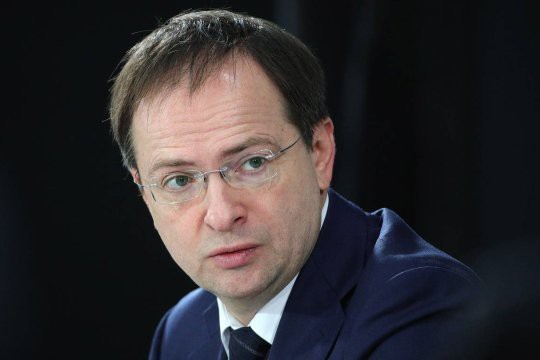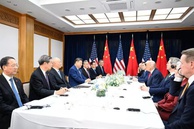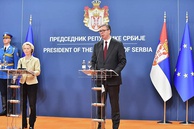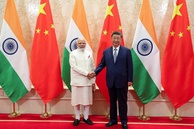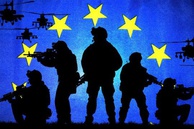Following the third round of Russian-Ukrainian talks in Istanbul, Russian presidential aide Vladimir Medinsky, who headed the Russian delegation at the negotiations, provided historical background for NATO Secretary General Mark Rutte, TASS reported.
When asked whether a meeting between the Russian and Ukrainian presidents had been discussed during the talks, Medinsky said, “I will provide a historical background especially for Mr. Rutte, who is a great lover of history. In China, there was a civil war between Communists and nationalists - Chiang Kai-shek and Mao Zedong. Chiang Kai-shek insisted all the time that we should meet in person and agree on everything.” He added that the parties had met about five times, took pictures, smiled, but this had brought no end to the civil war “because the basic issues, the basic contradictions were not resolved. The war continued."
Medinsky emphasized that, “despite massive Western military assistance the nationalists still lost the war, and the Communists won.”
Earlier, Russia's UN ambassador Vasily Nebenzya told RIA Novosti that Russia deems it fundamentally important that peace accords with Ukraine be signed by the country's legitimate leadership, and that the decree issued by Volodymyr Zelensky, (whose term expired on May 20, 2024) banning negotiations with Russian representatives, and his illegitimate status, could complicate the negotiating process.
Nebenzya noted that Moscow had always expressed readiness for dialogue "with all persons interested in finding a sustainable long-term peace on mutually acceptable terms." Therefore, he added, the question is who exactly will sign potential peace agreements and how they will be formalized from a legal standpoint.
The diplomat recalled Zelensky’s previous decision banning negotiations with Russia, and emphasized that his powers had already expired in May of last year and, in keeping with the Constitution of Ukraine, cannot be extended.
"These factors could complicate the negotiating process and the formalization of its results. If the negotiations are illegitimate, then their results may later be declared legally null and void. It is fundamentally important that the people who sign the peace agreements have the legal authority to do so," Vasily Nebenzya underscored.
read more in our Telegram-channel https://t.me/The_International_Affairs

 12:37 24.07.2025 •
12:37 24.07.2025 •
